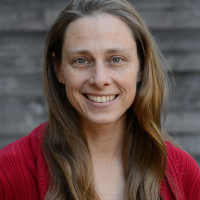About Us

Overview of VOFF
Visioning Our Food Future (VOFF) aims to enhance local food systems in Bladen, Columbus, and Robeson Counties. This initiative, led by community members and supported by a research team from NC State University, began with a comprehensive food system assessment involving over 400 community members through interviews, surveys, and events. The goal was a process that supports deep community relationships and collaboration and prioritizes actions for future food system development that can sustain a thriving local food economy, with equitable access to healthy food for all.
Our Food System Goals
What Are We Striving For

Increasing access to local
and healthy foods.

Improving profitability
for local farmers.

Strengthening local food
infrastructure and innovation.
Vision and Purpose

Vision
Our community's vision is equitable access to food that is nutritious and affordable for all community members of Bladen, Columbus, and Robeson Counties and is provided by a community-driven, place-based food system of thriving farmers, entrepreneurs, and infrastructure.

Purpose
The purpose of the Visioning Our Food Future (VOFF) strategic plan was to assess assets and challenges and prioritize actions to guide future food system development in Bladen, Columbus, and Robeson Counties of southeastern North Carolina. The VOFF plan can be used to identify equity-centered development strategies for funders and local governments to support.

Who We Are
Community members in Bladen, Columbus, and Robeson counties teamed up with a research team from North Carolina (NC) State University between 2022 and 2024 to create a food system assessment and plan for the region. The research team included NC State organizations, including Cooperative Extension, Center for Environmental Farming Systems (CEFS), and People 1st Tourism (P1t) Lab.
The Community Advisory Committee included seven community members from the three counties representing farmers, small business development, consumer health, equity advocates, youth support organizations, and two indigenous tribes. This process was community-driven, meaning the community informed the research questions, data needs, and research strategies.
The goal was a process that supports deep community relationships and collaboration and prioritizes actions for future food system development that can sustain a thriving local food economy, with equitable access to healthy food for all.
Grant Impacts
Our project uses a Community-Based Participatory Research approach to gather data. It is important that we are not extractive, and instead adding value and building capacity within our partners. How are we doing that?
Our Team
Meet our Community Advisory Committee and 2022-2024 researcher team from NC State University. This work was supported by the Kate B. Reynolds Charitable Trust.

Cathy Hunt
Resourceful Connections and former Healthy People, Healthy Carolinas Grant Facilitator for UNC Health Southeastern (Robeson)

Ed Hunt
Sustainable Agriculture Coordinator for Thomas Entrepreneurship Hub at the University of North Carolina at Pembroke (UNCP) (Robeson)

Randolph Keaton
Executive Director of Men and Women United for Youth and Families (Columbus)

Millard Locklear
New Ground Farm Owner/Operator and previous Manager of the Agriculture and Natural Resources Dept. for The Lumbee Tribe of North Carolina (Robeson)

Kim Pevia
Founder and Principle of K.A.P. Inner Prizes (Robeson)

Brielle Wright
Co-Owner of The Farmers B.A.G. (Bladen)

Pamela Young-Jacobs
Vice Chief of Waccamaw Siouan Tribe and Director of Small Business Center Southeastern Community College and Regional Director of the SBCN Sandhills Region (Columbus)

Niesha Douglas
Visioning Our Food Future Coordinator, Community-based Food Systems Research Scholar

Dara Bloom
Assoc Professor and Local Food Extension Specialist, Dept of Agriculture and Human Sciences

Hannah Dankbar
Cooperative Extension Local Food Program Manager

Dylan Dodson
MS Graduate Student, Dept of Parks, Recreation and Tourism

Duarte Morais
Assoc Professor, Dept of Parks, Recreation and Tourism

Lindy Olive
PhD Graduate Student, Dept of Sociology and Anthropology

Robyn Stout
Program Director, NC 10% Campaign

Jadelyn Velasquez
Food-Inspired Resilience & Equity (FIRE) Intern
Our Supporters


Timeline of Our Journey
When and What's Next?
Community Interest Meetings held with 46 area farms, Cooperative Extension, community organizations, and local government from 3 counties expressed how the strategic plan could support their work.
16 BIPOC farmers interviewed on their roles in local food system, interests in diversified agribusinesses models, and their constraints to success.
Community Advisory Committee of 7 community members formed and met on a monthly basis to advise research methods and questions, to review documents for context and appropriate wording, and to offer network connections with community members and organizations already doing great food system work.
Community Cafe events engaged 120 community members in 8 locations including housing authorities, a tribal community center, and Cooperative Extension and Community College centers, and a school with primarily Spanish-speaking parents to better understand challenges and ideas for healthy and local food access.
4 Beginning Farm Apprentices worked on area farms to increase the capacity and revenue of the farms and also increase their own knowledge of and networks in sustainable agriculture production, agribusiness management, and food systems.
3 Food System Interns worked at community organizations to increase the capacity of the organizations focused on community gardens, medicinal herbs, pasture-based meat production, and sustainable agriculture business models.
Consumer Survey was conducted with over 100 participants in 5 locations, including a community center, a university event, a farmers market, and food assistance events, to understand a wider set of community experiences.
Research data was analyzed, including additional information from food system leaders, farmworker support organizations, and farmers, to summarize food system development recommendations based on community feedback in the 3-county region.
Food Forums were held at 4 locations where community members reviewed recommendations and identified the top 6 strategies that will help develop a resilient food system in the region.
Food System Strategic Plan created to share with community members and funders interested in investing in the region. Implementation Teams being formed among community partners to determine the direction of the top strategies.
Community partners will apply for grant funding to advance the regional food system through the top 6 recommended strategies
Community members work together to create a food council that provides sustained support for the strengths and needs of the region.
